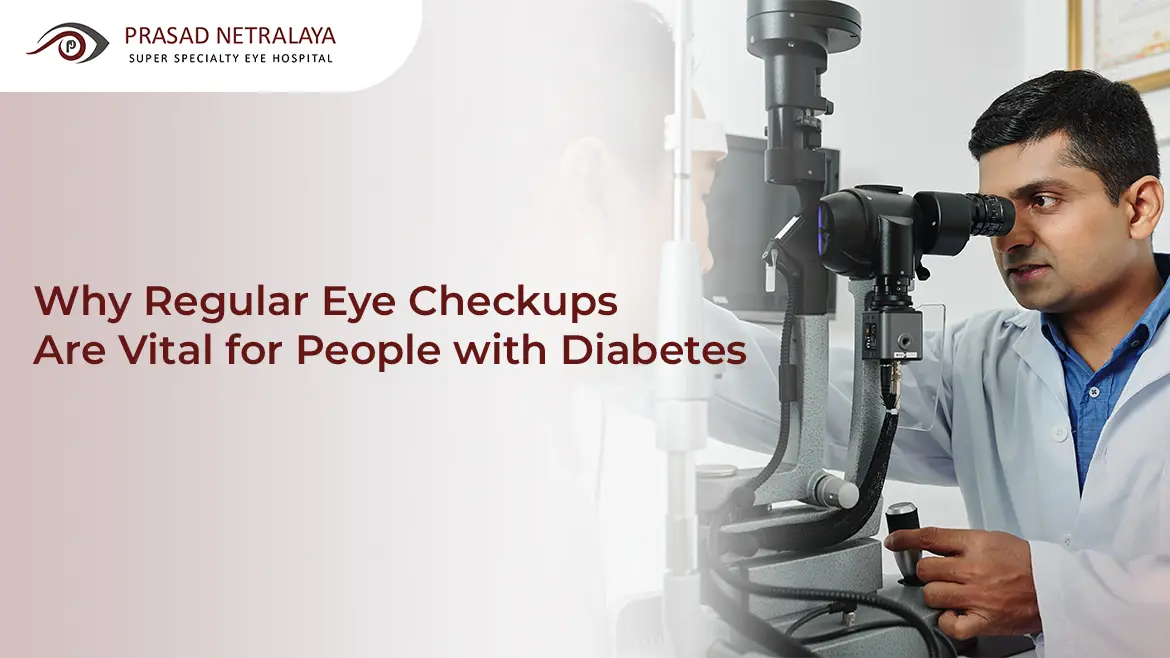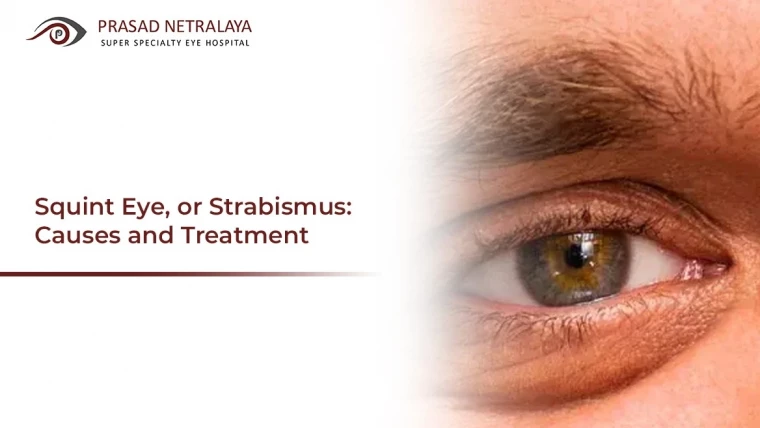Have you ever thought about how diabetes can quietly affect your eyes long before you notice any symptoms?
For many people, vision changes are among the earliest — yet most overlooked — signs of diabetes-related complications.
That’s why regular eye checkups for diabetic patients aren’t just important; they’re essential for protecting one of your most precious senses — your sight.
In this guide, we’ll uncover the importance of regular eye checkups for diabetic patients, how regular eye checkups can avoid vision loss, and some expert tips for diabetic eye care.
Let’s begin with,
Table of Contents
The Hidden Connection Between Diabetes and Eye Health
Diabetes doesn’t just affect your blood sugar levels — it impacts your entire vascular system, including the tiny blood vessels in your eyes. When these vessels are damaged due to prolonged high glucose levels, it can lead to diabetic retinopathy, a condition that gradually impairs vision and may even lead to blindness if left untreated.
But here’s the encouraging part:
Diabetic retinopathy is one of the most preventable causes of vision loss and blindness. Studies show that early detection and treatment can prevent or delay blindness in up to 90% of people with diabetes. Moreover, diabetes increases the risk of developing cataracts and glaucoma, making regular checkups even more crucial.
Point to Remember: People with diabetes should have a dilated eye exam every year. This simple step allows doctors to closely examine the retina and detect even the earliest signs of diabetic eye disease before it threatens your vision.
What Happens During a Diabetic Eye Checkup?
A diabetic retinopathy screening is a painless and non-invasive process that helps detect early signs of damage. During the examination, an eye specialist uses advanced retinal imaging and dilation techniques to look for tiny changes in your retina’s blood vessels, including swelling, leakage, or abnormal growth.
Modern eye care centers also use Optical Coherence Tomography (OCT) and Fundus Photography to get detailed images of the retina — helping your doctor diagnose problems before vision loss occurs.
For more information, read our guide on: Diabetic Retinopathy: How Diabetes Affects Your Eyesight
Routine Eye Exams for Diabetes: Early Action, Better Protection
When it comes to routine eye exams for diabetes, consistency is key. Even if your vision seems fine, diabetic eye damage can develop silently. Regular eye checkups can:
- Detect early changes before symptoms appear
- Prevent progression of diabetic retinopathy
- Reduce the risk of sudden vision loss
- Help manage other diabetes-related eye conditions
Think of your eye exam as a health checkpoint — it helps your doctor see what you can’t and take timely action to preserve your sight.
Eye Care for Diabetics: Taking Proactive Steps
Managing diabetes isn’t just about controlling sugar levels; it’s about safeguarding your overall well-being — including your eyes.
Here are some expert-approved tips for eye care for diabetics:
- Keep blood sugar, blood pressure, and cholesterol levels in check
- Follow a healthy, balanced diet
- Quit smoking to improve vascular health
- Wear UV-protective eyewear outdoors
- Never skip your annual eye exams (or more frequent checkups if advised)
These simple habits can make a world of difference in maintaining long-term visual health.
To learn more about a diet plan for diabetic retinopathy, read our guide on: What You Need to Know About Diabetic Retinopathy Diet.
Conclusion: Protect Your Vision, Protect Your Future
Your eyes deserve the same attention as your heart and pancreas when managing diabetes. Regular eye checkups aren’t just a precaution — they’re a lifeline for maintaining clear, healthy vision.
If you’re living with diabetes, don’t wait for symptoms to appear. Schedule your diabetic retinopathy screening today and stay a step ahead of vision complications.
Take the First Step with Prasad Netralaya
At Prasad Netralaya, our team of expert ophthalmologists provides comprehensive eye care for diabetics, from advanced retinal screenings to personalized diabetic eye health programs. With cutting-edge technology and compassionate care, we help you preserve your vision and live confidently — every day.
Book your diabetic eye checkup today and take control of your sight before diabetes takes control of it.
Frequently Asked Questions (FAQs)
Q1. Why are regular eye checkups important for diabetic patients?
Diabetes can damage blood vessels in the retina, leading to diabetic retinopathy and vision loss. Regular eye exams help detect early changes and prevent serious complications.
Q2. How frequently should people with diabetes have eye examinations?
Diabetic patients should have a comprehensive eye exam at least once a year. Those with existing eye issues may need more frequent checkups, as advised by their ophthalmologist.
Q3. What tests are performed during an eye checkup for diabetic patients?
Typical tests include visual acuity, dilated retinal examination, optical coherence tomography (OCT), and sometimes fluorescein angiography to detect early retinal damage.
Q4. Can eye checkups prevent vision loss in diabetes?
Yes, timely eye checkups allow early detection and treatment of complications like diabetic retinopathy, cataracts, and glaucoma, significantly reducing the risk of permanent vision loss.
Q5. What lifestyle changes complement eye checkups for diabetic patients?
Maintaining good blood sugar levels, controlling blood pressure, avoiding smoking, and following a healthy diet all support eye health and enhance the benefits of regular checkups.
Dr. Vikram Jain, M.S. had his medical training (MBBS) from Kasturba Medical College, Mangalore, India. He did his master’s in Ophthalmic surgery from Kasturba Medical College, Manipal. He currently manages the Glaucoma department of Prasad Netralaya hospital.



